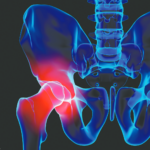Background & Objectives
Alcohol consumption affects the innate and adaptive immune system in a dose-dependent manner (e.g., 0–1 drink per month, 2–4 drinks per month, 2–3 drinks per week or more than four drinks per week). A large number of studies have demonstrated an inverse relationship between alcohol consumption and the risk of rheumatoid arthritis (RA), and this concept has been supported by several systematic reviews and meta-analyses. Studies on how alcohol consumption affects RA disease progression have been less consistent, although a recent meta-analysis concluded that alcohol consumption is associated with lower disease activity and disability.
Alfredsson et al. sought to study the relationship between alcohol consumption and disease activity, disease progression and health-related quality of life in patients with RA.
Methods
Alfredsson et al. followed up on 1,228 patients with newly diagnosed RA from the Epidemiological Investigation of Rheumatoid Arthritis (EIRA) population-based case-control study. The researchers compared the risk of unfavorable outcomes regarding disease activity and health-related quality of life in drinkers and non-drinkers. Odds ratios with 95% confidence intervals were calculated using logistic regression models.
Results
At baseline, the mean alcohol consumption among women and men was on the border between low and moderate consumption (52 gm or approximately four drinks per week among women and 112 gm or approximately eight drinks per week among men). Alcohol consumption at baseline (gm/week) correlated with anti-citrullinated protein negativity (r=0.1, P=0.002), RF status (r= −0.1, P=0.003). Non-drinkers reported higher disease activity and estimated their pain as more severe than drinkers.
At one year of follow-up, non-drinkers reported higher swollen and tender joint counts and experienced more pain and fatigue, lower global health scores and lower health-related quality of life. Drinkers who stopped consuming alcohol post-baseline also experienced higher disease activity, more pain and lower health-related quality of life at one year of follow-up than drinkers, although there was no difference in disease activity at baseline between drinkers who continued vs. discontinued drinking.
Conclusion
Alcohol consumption was associated with lower disease activity and higher health-related quality life in RA patients in a dose-dependent manner.
For full study details, including source material, refer to the full article.
Excerpted and adapted from:
Alfredsson L, Klareskog L, Hedström AK. Disease activity and health-related quality of life among patients with rheumatoid arthritis with different alcohol consumption habits. Arthritis Rheumatol. 2023 Jun;75(6).
